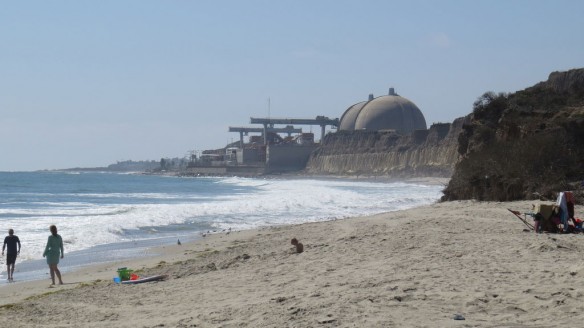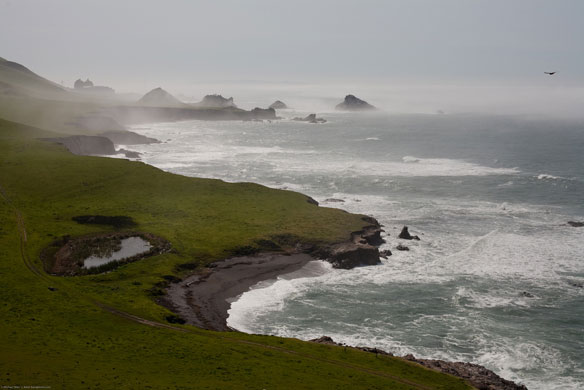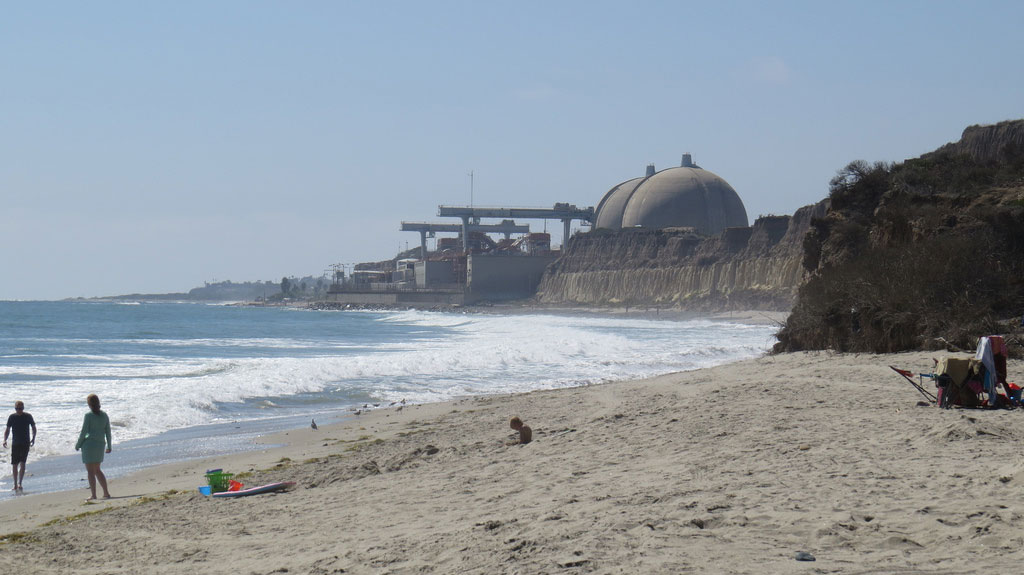
The San Onofre Nuclear Generating Station (SONGS) is a nuclear power plant located on the Pacific coast of California. The 84-acre (34 ha) site is in the northwestern corner of San Diego County, south of San Clemente, and surrounded by the San Onofre State Park and next to the I-5 Highway. Caption: Wikipedia. Photo source: ©© Luke Jones
Excerpts;
The nuclear tragedy currently unfolding in Japan started decades ago on a piece of paper. Before any infrastructure project that size is approved, a risk assessment needs to be done. Hazards are identified and a cost/benefit analysis is made about how to approach those risks.
If constructing in a seismic zone that hasn’t seen an earthquake above a magnitude of M6.5 in 100 years, do you build to withstand a magnitude of 7? Or put in extra the millions upfront to protect against a magnitude of 8 that may never come? Or do you simply choose not to build a nuclear power station in an earthquake zone at all?
Every critical energy installation (and much of all infrastructure) is built on the basis of such risk assessments. In the case of the energy sector, getting it right is crucial not only for the ability to generate power, but also for site integrity. However, there are increasingly problems, both physical and economic, with the way the risk assessments are done…
Read Full Article, By Cleo Paskal, published in the Huffington Post
Calls Heat Up For Reviews of California Coastal Nuclear Plants, The Los Angeles Times

PG&E’s Diablo Canyon Nuclear Power Plant, in background. California. Photo source: ©© Mike Baird









